
NGC 4309 is a lenticular galaxy located about 55 million light-years away in the constellation Virgo. The galaxy was discovered by astronomer Christian Peters in 1881 and is a member of the Virgo Cluster.

NGC 4873 is a lenticular galaxy located about 270 million light-years away in the constellation of Coma Berenices. NGC 4873 was discovered by astronomer Heinrich d'Arrest on May 10, 1863. The galaxy is a member of the Coma Cluster.

NGC 4871 is a lenticular galaxy located about 310 million light-years away in the constellation of Coma Berenices. NGC 4871 was discovered by astronomer Heinrich d'Arrest on May 10, 1863. It is a member of the Coma Cluster.

NGC 6039 is a massive lenticular galaxy located about 460 million light-years away in the constellation Hercules. NGC 6039 was discovered by astronomer Édouard Stephan on June 27, 1870 and later rediscovered by astronomer Lewis Swift on June 27, 1886. NGC 6039 is member of the Hercules Cluster, which is part of the CfA2 Great Wall.

NGC 6040 is a spiral galaxy located about 550 million light-years away in the constellation Hercules. NGC 6040 was discovered by astronomer Édouard Stephan on June 27, 1870. NGC 6040 is interacting with the lenticular galaxy PGC 56942. As a result of this interaction, NGC 6040's southern spiral arm has been warped in the direction toward PGC 56942. NGC 6040 and PGC 56942 are both members of the Hercules Cluster.
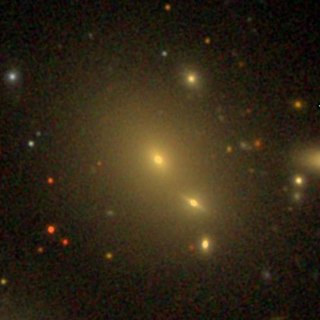
NGC 6041 is a giant elliptical galaxy located about 470 million light-years away in the constellation Hercules. NGC 6041 has an extended envelope that is distorted towards the galaxy pair Arp 122. NGC 6041 is the brightest galaxy (BCG) in the Hercules Cluster. The galaxy was discovered by astronomer Édouard Stephan on June 27, 1870.

NGC 521, also occasionally referred to as PGC 5190 or UGC 962, is a spiral galaxy located approximately 224 million light-years from the Solar System in the constellation Cetus. It was discovered on 8 October 1785 by astronomer William Herschel.
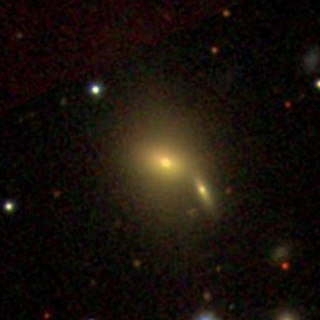
NGC 6043 is a lenticular galaxy located about 444 million light-years away in the constellation Hercules. NGC 6043 was discovered by astronomer Lewis Swift on June 27, 1886. The galaxy is a member of the Hercules Cluster.

NGC 6044 is a lenticular galaxy located about 465 million light-years away in the constellation Hercules. NGC 6044 was discovered by astronomer Lewis Swift on June 27, 1886. It was then rediscovered by astronomer Guillaume Bigourdan on June 8, 1888. NGC 6044 is a member of the Hercules Cluster.

NGC 4883 is a barred lenticular galaxy located about 315 million light-years away in the constellation Coma Berenices. NGC 4883 was discovered by astronomer Heinrich d'Arrest on April 22, 1865. It is a member of the Coma Cluster.

NGC 3867 is a spiral galaxy located about 350 million light-years away in the constellation Leo. It was discovered by astronomer Édouard Stephan on March 23, 1884 and is a member of the Leo Cluster.

NGC 3873 is an elliptical galaxy located about 300 million light-years away in the constellation Leo. The galaxy was discovered by astronomer Heinrich d'Arrest on May 8, 1864. NGC 3873 is a member of the Leo Cluster.
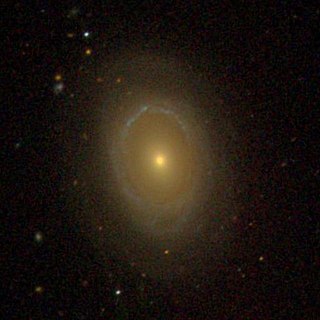
NGC 3884 is a spiral galaxy located about 330 million light-years away in the constellation Leo. The galaxy was discovered by astronomer William Herschel on April 27, 1785 and is a member of the Leo Cluster.

NGC 3886 is a lenticular galaxy located about 280 million light-years away in the constellation Leo. It was discovered by astronomer Heinrich d'Arrest on May 9, 1864. The galaxy is a member of the Leo Cluster.
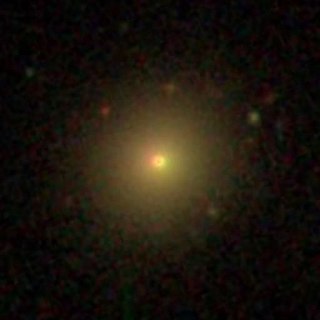
NGC 6053 is an elliptical galaxy located about 450 million light-years away in the constellation Hercules. The galaxy was discovered by astronomer Lewis Swift on June 8, 1886 and is member of the Hercules Cluster.
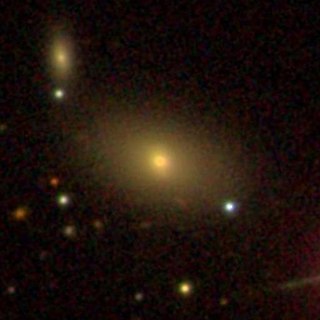
NGC 6054 is a barred lenticular galaxy located about 460 million light-years away in the constellation Hercules. It was discovered by astronomer Lewis Swift on June 27, 1886. It was then rediscovered by astronomer Guillaume Bigourdan on June 1, 1888. PGC 57073 is often misidentified as NGC 6054. NGC 6054 is a member of the Hercules Cluster.
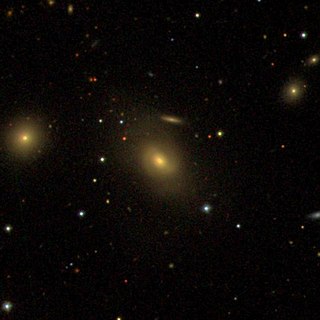
NGC 6055 is a barred lenticular galaxy located about 450 million light-years away in the constellation Hercules. The galaxy was discovered by astronomer Lewis Swift on June 8, 1886. It also a member of the Hercules Cluster and is a LINER galaxy.

NGC 6056 is a barred lenticular galaxy located about 525 million light-years away in the constellation Hercules. It was discovered by astronomer Lewis Swift on June 8, 1886. It was then rediscovered by Swift on June 8, 1888 and was later listed as IC 1176. NGC 6056 is a member of the Hercules Cluster.

NGC 714 is a lenticular galaxy located 190 million light-years away in the constellation Andromeda. The galaxy was discovered by astronomer Bindon Blood Stoney on October 28, 1850 and is a member of Abell 262.

NGC 717 is a lenticular galaxy located 210 million light-years away in the constellation Andromeda. The galaxy was discovered by astronomer Bindon Blood Stoney on October 28, 1850 and is a member of Abell 262.




















